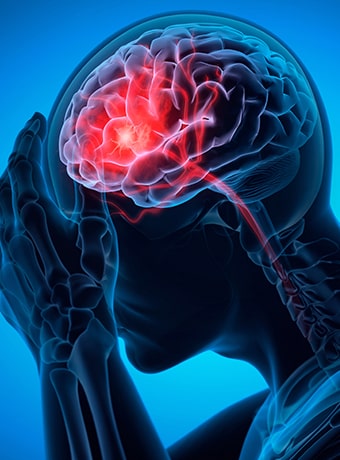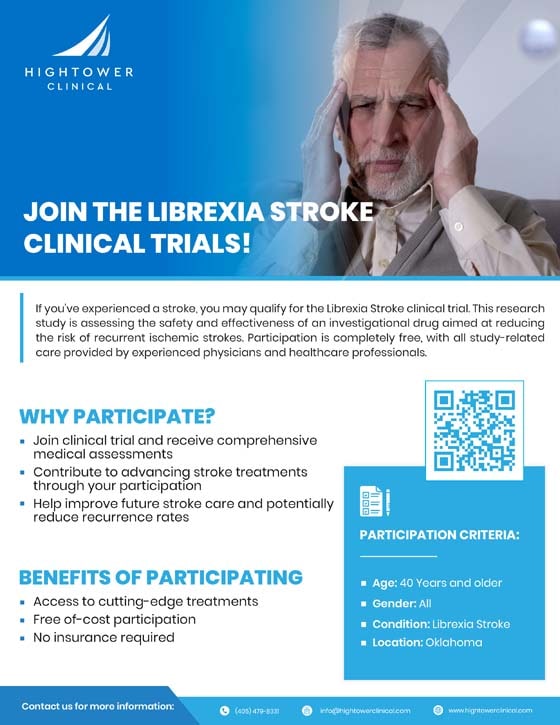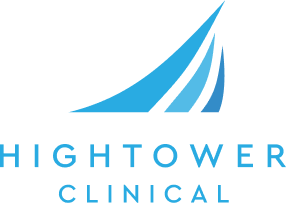An acute ischemic stroke occurs when a sudden blockage, usually a blood clot, prevents blood from reaching a part of the brain. This deprives brain cells of oxygen and nutrients, leading to cell death and potential brain damage.
Librexia Stroke Clinical Trials in Oklahoma City, OK
Join Librexia stroke clinical trials to help advance the research for a potential treatment to manage strokes more effectively.
Enroll Now
Coping with Stroke Effects?
You might qualify for the Librexia Stroke research.
Stroke remains one of the leading causes of mortality and long-term disability in the United States, affecting millions each year. Despite advances in treatment, the need for improved options to manage and prevent strokes remains urgent.
At Hightower Clinical, we’re currently conducting Librexia stroke clinical trials to assess the safety and effectiveness of an experimental drug designed for individuals who have experienced a stroke.
Participation in the clinical trial is completely free of charge and entirely voluntary.
To participate, fill out the form, and a member of our research team will contact you to determine your eligibility for the study.
About Librexia Stroke Clinical Trials
Hightower Clinical is conducting a research study on Librexia Stroke. The study intends to evaluate the safety and efficacy of an investigational medicine for individuals who have experienced a stroke.
This Phase 3 Librexia stroke clinical trial aims to assess whether the investigational drug can effectively reduce the risk of recurrent ischemic strokes.
Participants will be randomly divided into two groups: one group will receive the investigational drug, while the other will receive a placebo.
All study procedures and treatments, including the investigational drug, are provided at no cost, and insurance is not required to participate.
The study doctor will guide you through every step of the clinical trial, answering any questions you may have about the study treatment before you make your decision to participate.
Librexia Stroke Research: What to Anticipate
Upon agreeing to participate in the study, you will be asked to sign an Informed Consent Form that provides comprehensive details about the Librexia stroke study. Our research team will also guide you through the study process and explain your role in the trials. We strongly encourage participants to ask any questions they may have before deciding to participate or withdraw from the trial.
Once the consent form is signed and all questions are addressed, participants will be randomly assigned to one of two groups: the Control group or the Experimental group.
In the Control group, participants will receive a placebo medication without active ingredients, while those in the Experimental group will receive the actual study drug containing active ingredients. This study is double-blind, meaning neither the researcher nor the participant knows which treatment is being administered.
Study-related care is provided free of charge. Expert physicians and healthcare professionals will perform thorough physical exams and assessments throughout the trial.


Age
40 years and older
Gender
All
Condition
Librexia Stroke
Current Status
Recruiting
What Happens in an Ischemic Stroke?
An ischemic stroke happens when blood flows to a section of the brain is obstructed, typically due to a blood clot. Without sufficient blood supply, brain cells in the affected area start to die, leading to the loss of abilities controlled by that part of the brain.
Complications
Complications from an ischemic stroke can be severe and long-lasting. These may include:
- Paralysis: Partial or complete inability to move specific parts of the body.
- Speech and language difficulties: Trouble speaking or understanding others.
- Cognitive impairments: Memory loss, difficulty thinking, or problem-solving issues.
- Emotional changes: Depression, anxiety, or changes in behavior.
- Increased risk of future strokes: Once someone has had a stroke, they are at greater risk for another one.
Symptoms
Common symptoms of ischemic stroke include:
- Sudden numbness or weakness in the face, arm, or leg, especially on one side of the body.
- Difficulty speaking or trouble understanding speech.
- Sudden confusion or trouble comprehending simple tasks or directions.
- Sudden trouble seeing in one or both eyes.
- Severe headache with no known cause.
- Dizziness or a sudden loss of balance and coordination.
- Trouble walking or difficulty with movement.
- Blurred vision or double vision.
- Slurred speech or inability to form clear words.
- Loss of consciousness or brief blackouts.
Frequently Asked Questions
What is a transient ischemic attack and how is it different from a stroke?
A transient ischemic attack (TIA), or “mini stroke,” is a temporary blockage of blood flow to the brain that resolves on its own. Unlike a stroke, TIAs don’t cause permanent brain damage, but they are a warning sign of a future stroke risk.
What are the signs and symptoms of an acute ischemic stroke?
Symptoms include sudden numbness or weakness in the face, arm, or leg (especially on one side of the body), confusion, trouble speaking, difficulty seeing, or a loss of balance or coordination.
What happens during the Librexia Stroke clinical trial?
Participants in the Librexia Stroke clinical trial are randomly assigned to receive either an investigational drug or a placebo. The study monitors the safety and efficacy of the drug in reducing stroke recurrence.
Why participate in the Librexia Stroke clinical trial?
Participating offers the opportunity to contribute to medical advancements in stroke treatment and receive study-related care at no cost. Your involvement could help improve future stroke therapies for others.




